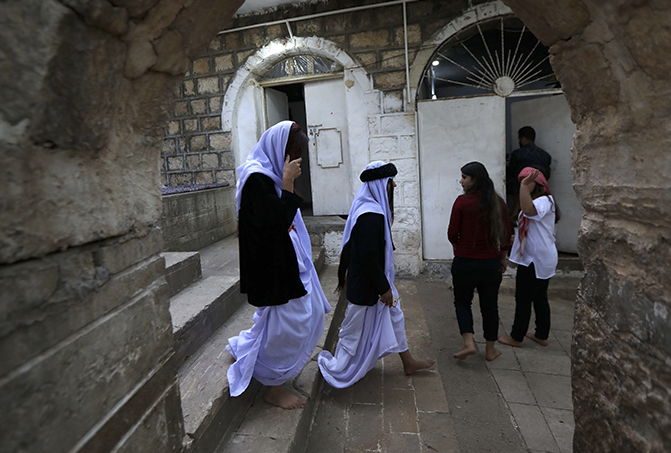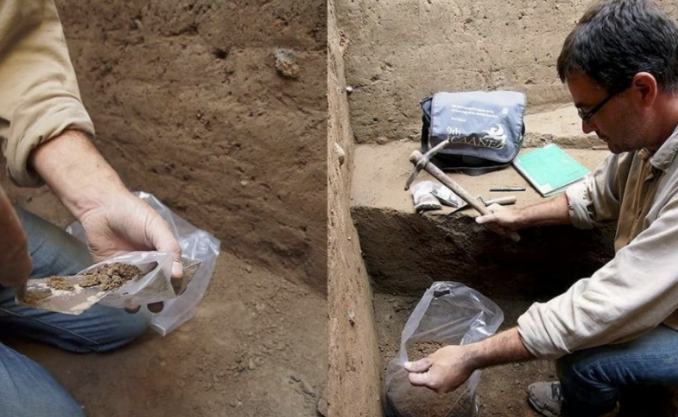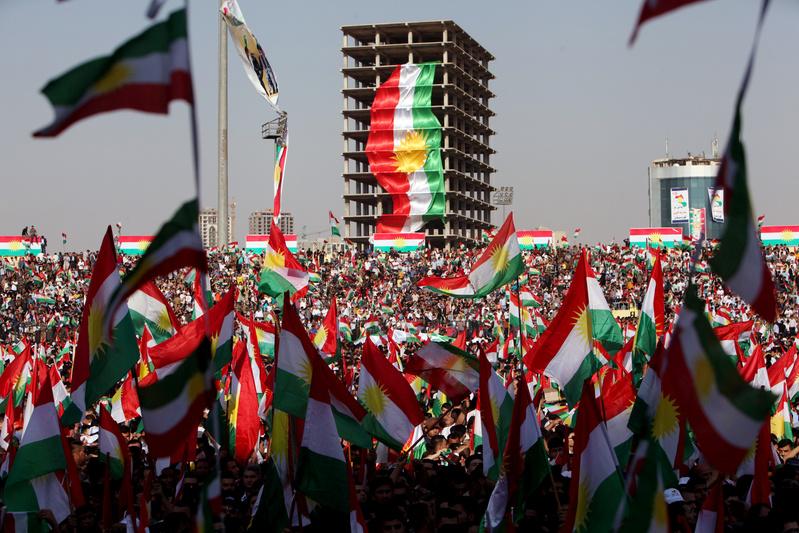Articles
Kurds, Their Neighbors, and Prospects for Independence
The kurdish project / 2 ноября 2017 года
A combination of emotion and pragmatism drove the Kurdistan Regional Government (KRG) to push for an independence vote on September 25, and emotion and pragmatism are shaping local, regional, and international responses to the referendum.
With a growing sense that a historic shift is at hand, managing the volatile mix will challenge governments and populations alike. To analyze the domestic, regional, and international implications of the referendum, and to situate it within the broader context of separatist movements, Dr. Bilal Wahab of The Washington Institute for Near East Policy, Professor Ellen Laipson of George Mason University, and Professor Stephen Saideman of Carleton University, Ottawa, spoke at a CSIS Middle East Program roundtable titled “Kurds, Their Neighbors, and Prospects for Independence” on October 2, 2017.
Kurdish Calculations
Kurdish political calculations leading up to the September 25 referendum were based on several factors, Wahab said. First, the KRG judged that it had leverage with Baghdad because of the Peshmerga’s fighting performance and the region’s control over northern oil infrastructure. Second, the KRG’s political order was in need of resuscitation—partly because of stagnation and creeping corruption, and partly because of an economic crisis brought on by the costs of hosting nearly two million refugees and internally displaced peoples (IDPs) while low oil prices strain government accounts. Third, rising sectarianism in Iraqi politics and the central government’s legitimation of the largely Shi’ite Popular Mobilization Forces (PMFs) made Kurds feel an urgent need to protect their interests.
Overshadowing the immediate politics, Kurdish leaders sought to keep alive the Kurdish dream of independence, said Wahab. Despite internal differences, there is near consensus in the Kurdish community to seek eventual independence, and the referendum allowed the Kurds to prove the seriousness of their aspirations to both Iraqis and the international community.
International Response
The KRG’s neighbors, most importantly the Iraqi central government, Turkey, and Iran, reacted swiftly to the referendum.
According to Laipson, fear of losing a grip on their own Kurdish minorities largely shaped their reactions to the referendum. But Laipson argued that Kurdish politics are independent from country to country and judged it very unlikely that Kurdish independence would lead to a unified Kurdish state. “The KRG’s independence bid will not alter the borders of its neighbors,” she said plainly. Saideman agreed that irredentism is unlikely. He quoted Paradise Lost to assess that Kurdish leaders outside of the KRG would “rather reign in Hell than serve in Heaven,” meaning that few would willingly give up their current power for a subservient role within a larger Kurdish political entity.
Still, the strong reaction of the KRG’s neighbors threatens Iraqi Kurds, according to Laipson.
In a worst case scenario, border closings, air traffic restrictions, and economic blockades could strangle the economy and spark a military confrontation. The threat is all the more potent because the referendum has united Iraq, Turkey, and Iran—three historic rivals that surround Iraqi Kurdistan—so that the Kurds have no easy way out.
Panelists agreed that the longer term is more promising. The KRG has been a strong economic partner for Turkey over the last decade, and despite threats, Turkey has not shut off the oil pipeline from Kurdistan. The pipeline accounts for almost all of the KRG’s oil exports. Iraq has also benefitted from the KRG’s role as a “balancer” in Iraqi internal politics. For all of its neighbors, the self-governing KRG has been a convenient “buffer,” according to Laipson. Beyond the rhetoric, then, the KRG’s neighbors have interests to protect, and to build on.
Laipson cautioned against assuming that Turkish, Iranian, and Iraqi convergence against the referendum would endure as an alliance. Yet, an alliance between Turkey and Iraq against the KRG would spell disaster for the Kurds, Wahab judged.
U.S. policy choices also matter. Saideman expressed surprise at the Kurds’ “wishful thinking” that the United States would come to support Kurdish independence ambitions. He argued that interests drive international support, and he predicted that the United States would ultimately support whichever outcome it deems more likely to stabilize Iraq. The United States has “been an enabler of Kurdish separatism” for many years, Laipson stated. Yet, in her view, the United States can and will compartmentalize its security partnership with the Peshmerga from any support for Kurdish independence. While the United States or international bodies could support Kurdish independence down the line, she noted, facts on the ground would have to change considerably for a significant U.S. policy shift. Given the ongoing regional crises, speakers agreed that the international community will focus on other priorities and interests and avoid destabilizing moves in the short-term, such as supporting Kurdish independence.
Separatism in Context
Saideman placed Iraqi Kurds’ push for independence in the broader historic context of other independence movements. He noted that violent government responses to peaceful acts of self-determination often push separatists to take up arms. While the referendum was nonviolent, Saideman wondered for how long Iraq would sustain a nonviolent approach, given its history. If Kurds were to separate from the Iraqi state, Saideman suggested, both Kurdistan and Iraq might slide toward “ethnic outbidding,” whereby parties become more extreme and even violent as they seek to demonstrate they are more devoted to the cause of their ethnicity than their competition.
Looking Forward
Now that Iraq’s Kurds have voted overwhelmingly in favor of independence, their next moves will have a major impact on their neighbors. Baghdad now needs the Kurds more than the Kurds need Baghdad, Laipson judged. Iraqi Prime Minister Haider al Abadi would be in a particularly precarious position if the KRG were to leave Iraq, and his political needs could push the KRG and Baghdad to the negotiating table. Wahab noted there might be appetite for reconciliation on the Kurdish side too, as Kurds might prefer interdependence with Baghdad to dependence on a neighbor, like Turkey. Signaling a long timeline for self-determination that does not include other Iraqi Kurdish populations and territory could lower tensions in the short-term. Regardless of the KRG’s long-term intentions, its next steps will have to focus on managing its most important and complex relationship—Iraq—and it will have to be alert to both the opportunities and threats that lie before it.
Источник: thekurdishproject.org











